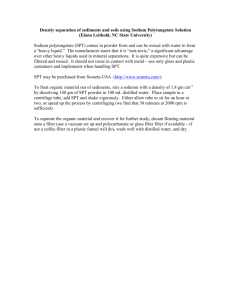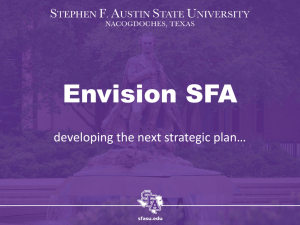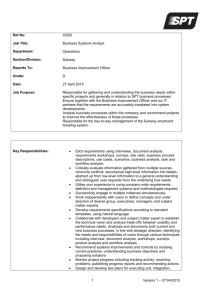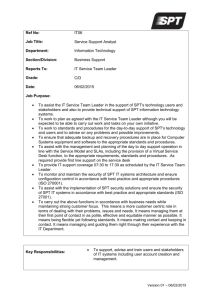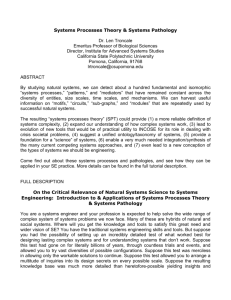SUBCOMMITTEE ON PREVENTION OF TORTURE AND OTHER CRUEL, INHUMAN OR DEGRADING (SPT)
advertisement
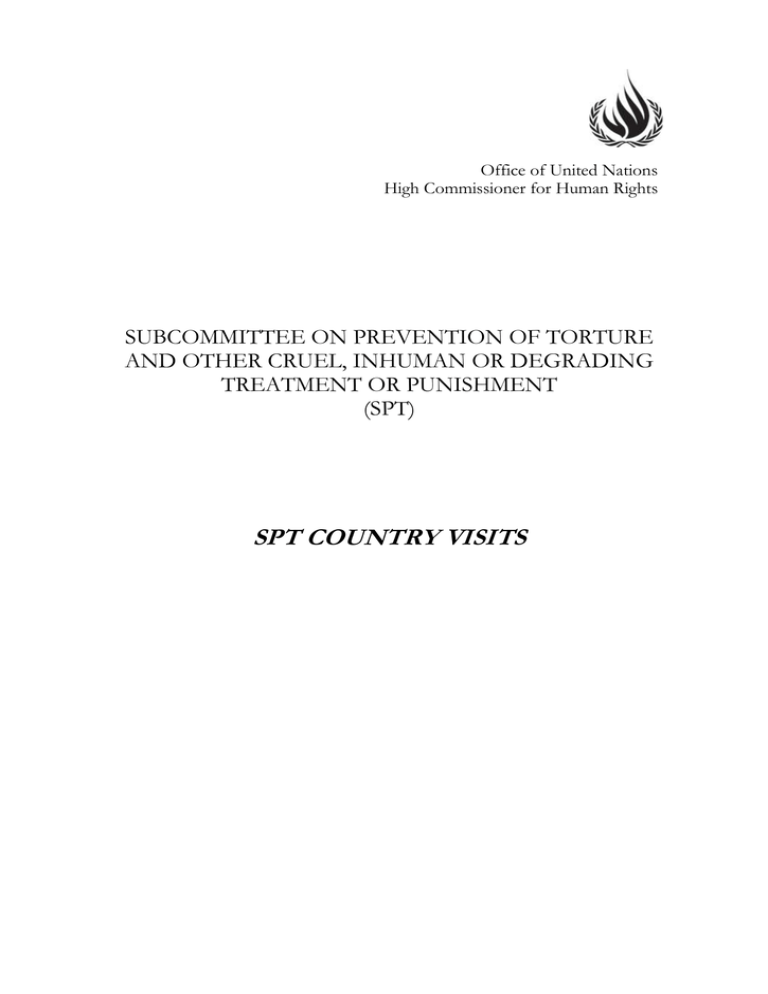
Office of United Nations High Commissioner for Human Rights SUBCOMMITTEE ON PREVENTION OF TORTURE AND OTHER CRUEL, INHUMAN OR DEGRADING TREATMENT OR PUNISHMENT (SPT) SPT COUNTRY VISITS -2- Before the SPT visit The SPT notifies the State Party concerned in writing in advance of the planned dates of a visit. The SPT also notifies the State Party in writing of the names of the SPT members who will take part in the visiting delegation, the names of external experts who will assist the delegation, as well as the names of the members of the SPT Secretariat who will support the delegation. The SPT requests information to be provided in advance of the visit, as detailed in the list of official information requested from States Parties. During the SPT visit The SPT delegation carries out the visit according to the principle of co-operation and maintains strict confidentiality concerning its work and its findings. During the visit, the SPT delegation meets with senior officials of the Ministry responsible for law enforcement (police) and with senior officials of the Ministries responsible for the custody of persons held in pre-trial detention, prison, military detention, immigration detention, psychiatric or social care institutions, or any other place of deprivation of liberty. The meetings are scheduled in consultation with the liaison officer(s) for the visit. The SPT delegation also meets with the NPM(s), if already set up, and discusses all aspects of the establishment and functioning of the NPM(s). If the process of setting up the NPM(s) is still occurring, the delegation meets with persons involved in its establishment. The SPT takes the view NPM development is an on-going process which the SPT will continue to monitor. The SPT also meets with national human rights institutions (NHRIs) and nongovernmental organisations (NGOs), as well as with others who have information relevant to the SPT's mandate. The SPT visits a variety of places of deprivation of liberty and speaks in confidence with persons held there and with staff and other persons involved in work relating to such places. At the end of the visit, the SPT delegation has a final meeting with senior officials of the relevant ministries and bodies. The meeting is an opportunity for the SPT delegation to present its preliminary observations and for a confidential discussion concerning the visit, including issues related to the national preventive mechanism(s) and to the treatment of persons deprived of their liberty in places visited. This meeting is an opportunity to identify issues and situations requiring immediate action, as well as other elements of law and practice requiring improvement in order to reinforce the safeguards for persons deprived of their liberty against ill treatment. The authorities may wish to provide immediate feedback on some issues. -3- The SPT issues a brief written press release indicating that a SPT visit has taken place to the State Party concerned, with a list of the SPT members in the visiting delegation and the persons accompanying them. The press statement indicates that the SPT met with senior officials of the Ministries listed, with representatives of the NPM(s) or potential NPM(s), with NHRIs, NGOs and others and that the SPT visited the places of detention listed. After the SPT visit After the visit, but before the adoption of the visit report, the authorities will be invited to provide information about developments since the visit in relation to some of the issues raised during the final talks. A confidential report on the visit is subsequently drawn up and adopted by the SPT for transmission to the State Party. The State Party is requested to respond to the recommendations made in the report and to any requests for further information according to a timetable specified in the letter of transmission accompanying the report. The SPT visit report remains confidential until the State Party requests its publication, together with any comments the State Party might wish to make. The SPT is committed to co-operative and productive working relationships with the States Parties. Follow-up visits The Subcommittee on Prevention of Torture (SPT) may also undertake short follow-up visits. Such follow-up visits may be carried out following an SPT country visits and provide the SPT with the opportunity to learn of developments and see how its recommendations have been implemented. During such visits the SPT will meet with the national authorities, the National Preventive Mechanism, representatives of civil society in additional to visiting places where persons are deprived of their liberty. After the visit, a follow-up visit report is drawn up. The report is transmitted in confidence to the Government, and forms the basis of a dialogue between the SPT and the State concerned. The follow-up visit report will be made public should the State gives its permission. -----
